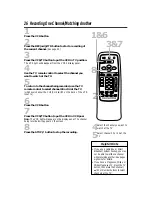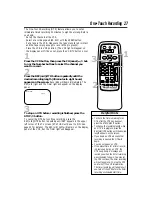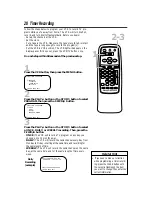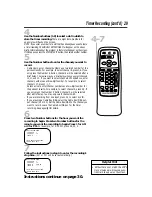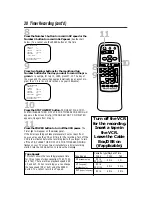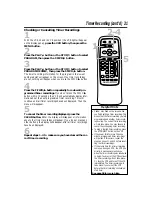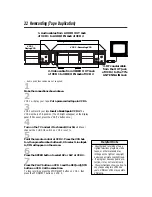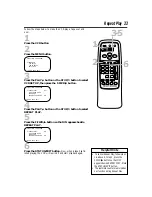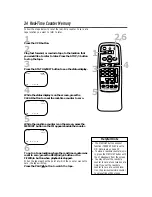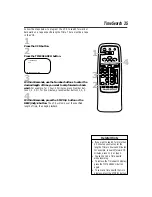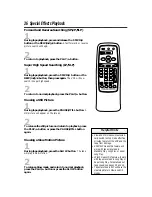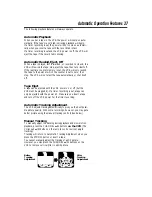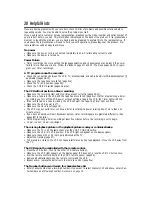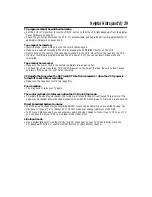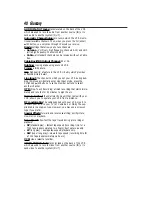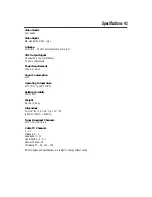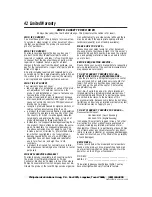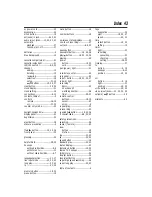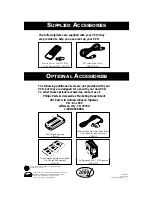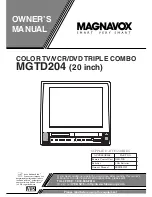
40 Glossary
AUDIO IN/OUT Jacks: jacks located on the back of the VCR
which are used to record audio from another source (IN) or to
send audio to another system (OUT).
Automatic Channel Setup: process in which the VCR memo-
rizes all available channels. Then, when you press the CH(annel)
o
/
p
button, you only scan through channels you receive.
Bands: settings that allow you to tune channels.
• Antenna – VHF (very high frequency; channels 2-13) and UHF
(ultra high frequency; channels 14-69).
• Cable – all standard channels can be received without a Cable
Box.
Cable Box/DBS Output Channel: 03 or 04.
Dubbing: copying a tape using a second VCR.
Frame: a still picture.
HQ: high quality; a feature in the VCR circuitry which provides
enhanced picture detail.
Line Input: The channel to which you set your VCR during dub-
bing (00).If you accidentally enter Line Input mode, press the
CH(annel)
o
/
p
button or use the Number buttons to select
another channel.
OTR: One-Touch Recording; a timed recording that starts imme-
diately and records for 30 minutes to eight hours.
Remote Control: the small electronic unit that came with your
VCR; allows you to operate your VCR from a distance.
RF coaxial cable: The cable supplied with your VCR. Use it to
connect your VCR to your TV (or Cable Box or DBS). The sup-
plied cable is a snap-on type. However, you may use a screw-on
type if you prefer.
Special Effects: forward and reverse searching; a still picture;
slow motion playback.
Tape Speeds: how fast the tape travels during a recording or
playback.
• SP (standard play) – fastest tape speed (recording time for a
T120 tape is approximately two hours); best picture quality.
• LP (long play) – average tape speed; playback only.
• SLP (super long play) – slowest tape speed (recording time for
a T120 tape is approximately six hours).
VCR: video cassette recorder.
VIDEO IN/OUT Jacks: jacks located on the back of the VCR
which are used to record video from another source (IN) or to
send video to another system (OUT).

